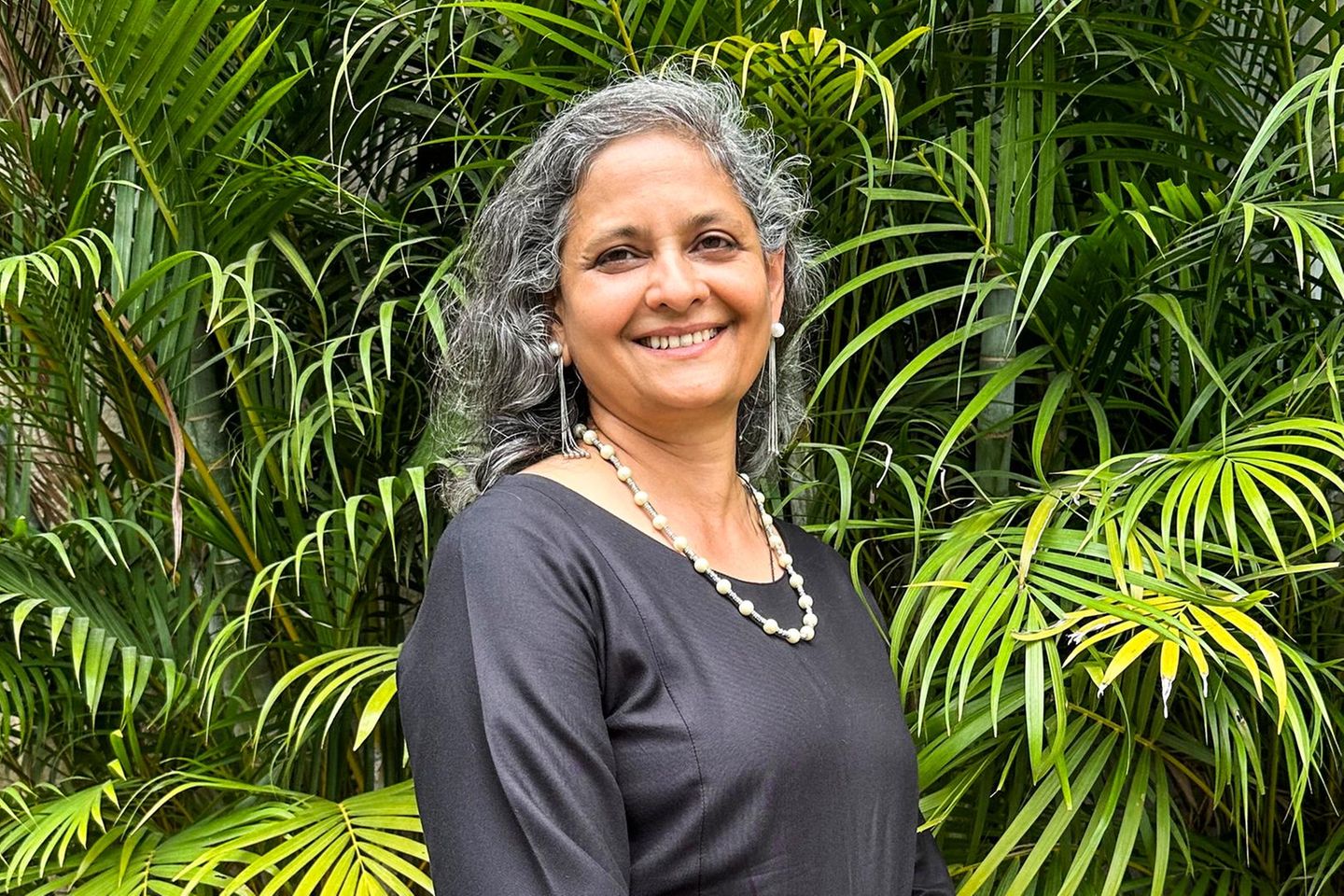Pratima Joshi
As an IT pioneer, she gives Indian slums an address
Anyone who lives in a slum remains invisible. Pratima Joshi wants to change that.
© Private
Her passion: data
Their mission: give people in the slums an address
What helps her: humor and meditation
Before, she was never interested in computers or digital programs, says Pratima Joshi. Basically, she doesn’t do that to this day, despite all the awards. “As a child, I wasn’t a techie, but I loved singing and drawing, and I was also fascinated by research,” she says. After school in Chennai, in southeast India, the now 59-year-old studied architecture (“the perfect mix of art and science”), received her diploma at the renowned Bartlett School in London and went back to India, to build houses for poor families there.
That’s when she discovered the power of data, because they expose grievances ruthlessly. And soon they became the topic of her life. In order to be able to better plan her numerous construction projects in the slums, from simple toilets to apartment buildings, Pratima Joshi started mapping the neighborhoods early on – and she hasn’t stopped to this day. She has been collecting information about the slums in this way for 30 years with her organization Shelter Associates India’s metropolises.
She also uses the data to finally give slum residents an address: To do this, she converts the longitude and latitude of a place into a so-called plus code, a combination of letters and numbers. FRV5+2X Pune, for example, marks a grocery store in Laxmi Nagar, a slum in the city of Pune in western India. So far, 5,400 people have shared a single address, the streets in the district have no names. Individual houses, shops and families were therefore not easy to reach – neither for friends and suppliers, nor for midwives, emergency services or the fire brigade. Letters, packages and goods were deposited at the settlement’s central collection point, a mighty banyan tree.
Giving a voice to the invisible
Without an address, people cannot open an account or receive voting documents. They were invisible to the state. A politically convenient solution, because filing complaints, applying for state aid or electing a mayor who would represent their interests was impossible for residents. It is not even officially known how many people live in the slums. The rapidly growing slums cannot cast a shadow over the rise of the new economic power India under conservative-autocratic leadership.
Through her work, Pratima Joshi is putting these people back on the agenda: Around 65 million live in the country’s slums; without them, many large cities would collapse – the activist is convinced of that. “The poor need the city just as much as the city needs them.” Because they work as street vendors, messengers and garbage collectors – and thus keep the metropolises running.
However, many official city maps only show their neighborhoods as blank spots. Joshi criticizes that the authorities hardly know where water and power lines run, which paths lead through the slums, or how many people live in them.
An important help for women and girls
Shelter Associates therefore first evaluates satellite images, for example from Google Earth. Then the work begins on site: employees of the organization record property boundaries and the location of sewers or garbage dumps. They also survey the residents of the individual houses: Is anyone in the neighborhood particularly in need of help, such as a single mother or an old man with walking difficulties? Wherever possible, the initiative tries to help: for example, it has already built 27,000 toilets in houses in poor neighborhoods – an important help, especially for women and girls. Because they previously had to fear being harassed or attacked on the way to the public toilet. The gratitude of these women for their own simple bath is beautiful and depressing at the same time, says Joshi: “Many tell me that they will now finally eat their fill in the evening and also drink enough.” They would have forgone this before so as not to have to go out at night. The donation-financed initiative also builds houses for particularly poor families – in close coordination with the residents.
Joshi has long been considered an IT pioneer in development aid, honored by the UN, The business magazine “Forbes” ranks her among the 20 most important women in India. She annoys the authorities until they comply with regulations and promises; she makes her data available to the authorities anyway. Her sense of humor always helped her in the fight with bureaucracy, she says. “And my daily meditation.”
She has so far mapped 650 poor neighborhoods in India online. And the adrenaline still rushes through her blood when she tests new digital technologies: “It’s pure excitement,” says Pratima Joshi. The woman who didn’t like dating. And now so much has moved with them.
